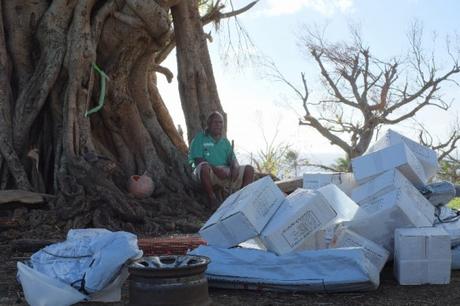 The observations of an ill-informed bystander on the response to Cyclone Pam
The observations of an ill-informed bystander on the response to Cyclone Pam
1) The other aid agencies are on your side; they’re trying to help too. And yes, they make mistakes – just like you.
2) It’s called a disaster for a reason. It’s difficult to respond to everyone at once. Just because one agency hasn’t been able to do everything when you arrive, it doesn’t make them incompetent or neglectful and it doesn’t necessarily mean that ‘nobody’s helping these people.’
3) It takes time to communicate, but it saves your sponsors a lot of money in duplication and gets the resources to where they are needed.
4) Local staff might not have your expertise, but they do have their expertise.
5) Do not confuse you understanding people’s ‘broken’ English with them understanding your fluent English. People will nod while you are talking whether or not they are following what you are saying.
6) What people mean when they answer ‘yes’ is not the same as what you mean when you give the same answer. After all, if you meant ‘no,’ then you would have said ‘no.’ Equally, the answer you are given is not necessarily the whole answer. You need to ask the same question many different ways to many different people – including people who have nothing to be gained or lost.
7) Language is everything and an impartial translator is worth his/her weight in … tarpaulins.
8) More spending does not necessarily equal more help and it is possible that sometimes more help is not helpful.
9) If you are not replacing something or compensating for something lost in the disaster to meet a need created by that disaster, then it’s not really relief; it’s playing Santa. Isn’t it?
10) Anything done in excess of ‘need’ in disaster relief only undermines disaster preparedness.
